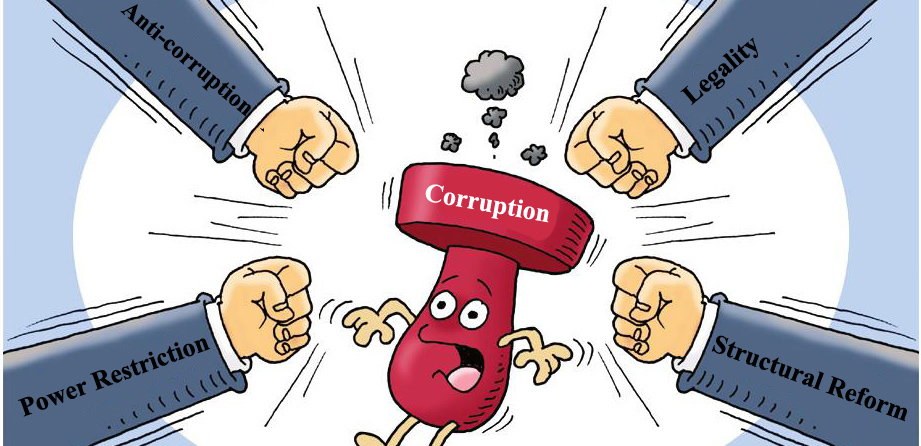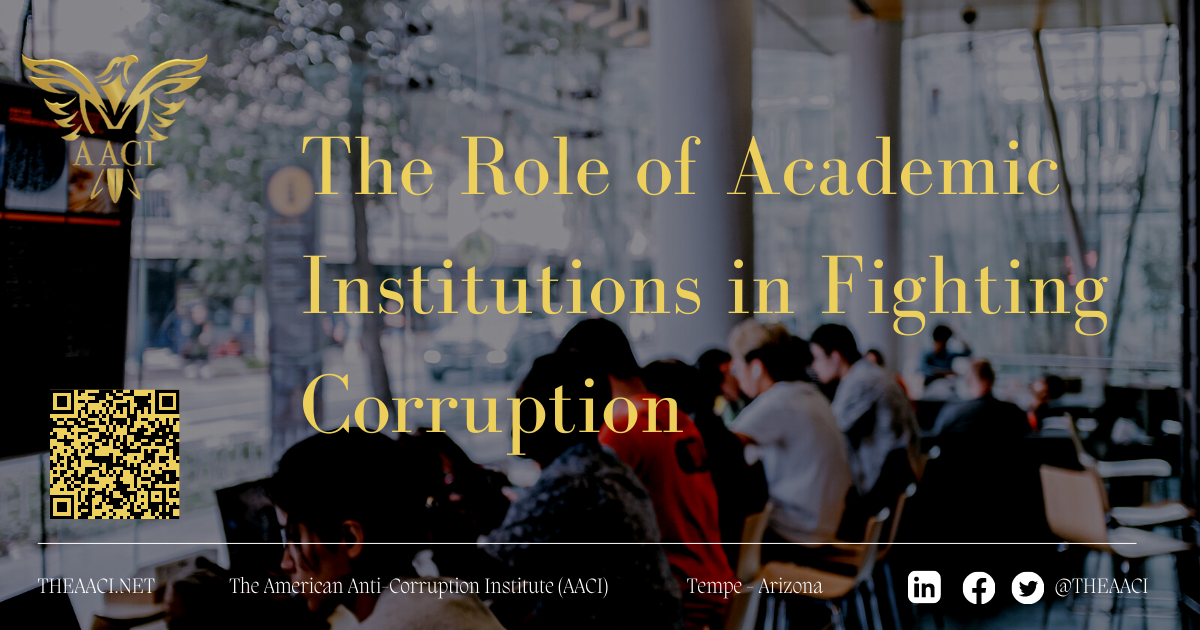Opinion
Cyprine Omogi: Training Institutions & Building a Corruption-Free Society

Training institutions play a vital role in equipping individuals with the knowledge, skills, and attitudes necessary to combat corruption effectively.
Corruption poses a significant threat to the functioning of both public and private sectors, and comprehensive training is essential to raise awareness, prevent corrupt practices, and foster a culture of integrity.
By providing education on the nature of corruption, legal frameworks, ethical standards, and strategies for prevention, training institutions empower personnel to make informed decisions and contribute to a corruption-free society.

Courtesy
Cyprine Omogi: Understanding Corruption and its Implications
Corruption, as defined by the World Bank, refers to the abuse of power for personal gain or the benefit of a particular group.
It manifests in various forms such as extortive, transactive, investive, and collusive corruption, affecting different sectors within an organization.
Training on corruption helps individuals grasp the nuances of these corrupt practices, enabling them to identify and address potential issues before they escalate.
Promoting Ethical Behavior and Integrity
The integrity of personnel is of paramount importance in preventing corruption. As renowned businessman Warren Buffet suggests, integrity is a critical trait to look for when employing individuals.
Training institutions instill a strong sense of ethical behavior, emphasizing the importance of aligning personal desires with organizational interests.
By understanding the Leadership and Integrity Act 2012, code of conduct and ethics, and other relevant laws and policies, individuals learn to navigate conflicts of interest, adhere to gift thresholds, and maintain the highest standards of professionalism.
Preventing Corruption and Ensuring Efficiency
Corruption has far-reaching consequences, affecting social, economic, and political aspects of society. It thrives when individuals lack proper training or succumb to greed.
Effective training equips personnel with tools and strategies to prevent corruption, ensure the efficient utilization of resources, promote creativity and innovativeness, and improve overall organizational performance.
By fostering a culture of transparency and accountability, training institutions contribute to the long-term success and sustainability of public and private sector organizations.

Image: AACI
Cyprine Omogi: The Role of Training Institutions
Training institutions, such as the Ethics and Anti-Corruption Commission’s Directorate of Preventive Services Education Department, play a crucial role in combating corruption in both the public and private sectors.
Through their programs, they provide comprehensive training to individuals, enhancing their understanding of corruption, its consequences, and the legal framework in place to prevent it.
By targeting both new recruits and experienced personnel, these institutions ensure that organizations continue to operate efficiently and effectively, even after the retirement of key leaders.
This article reflects the opinions of Cyprine Omogi, the Education Officer at the Ethics and Anti-Corruption Commission in Kenya. Omogi is known for being a strong advocate for transparency and the establishment of a society free from corruption.
Kenya Insights allows guest blogging, if you want to be published on Kenya’s most authoritative and accurate blog, have an expose, news TIPS, story angles, human interest stories, drop us an email on [email protected] or via Telegram
-

 Grapevine3 days ago
Grapevine3 days agoAlleged Male Lover Claims His Life Is in Danger, Leaks Screenshots and Private Videos Linking SportPesa CEO Ronald Karauri
-

 Lifestyle6 days ago
Lifestyle6 days agoThe General’s Fall: From Barracks To Bankruptcy As Illness Ravages Karangi’s Memory And Empire
-

 Americas2 weeks ago
Americas2 weeks agoEpstein Files: Bill Clinton and George Bush Accused Of Raping A Boy In A Yacht Of ‘Ritualistic Sacrifice’
-

 Business2 weeks ago
Business2 weeks agoCooking Fuel Firm Koko Collapses After Govt Blocks Sh23bn Carbon Deal
-

 Business2 weeks ago
Business2 weeks agoABSA BANK IN CRISIS: How Internal Rot and Client Betrayals Have Exposed Kenya’s Banking Giant
-

 Investigations1 week ago
Investigations1 week agoEpstein Files: Sultan bin Sulayem Bragged on His Closeness to President Uhuru Then His Firm DP World Controversially Won Port Construction in Kenya, Tanzania
-

 News1 week ago
News1 week agoAUDIT EXPOSES INEQUALITY IN STAREHE SCHOOLS: PARENTS BLED DRY AS FEES HIT Sh300,000 AGAINST Sh67,244 CAP
-

 News2 weeks ago
News2 weeks agoPuzzle Of Mysterious 15 Deaths of Street Children in Nairobi Under A Month and Mass Burials
























